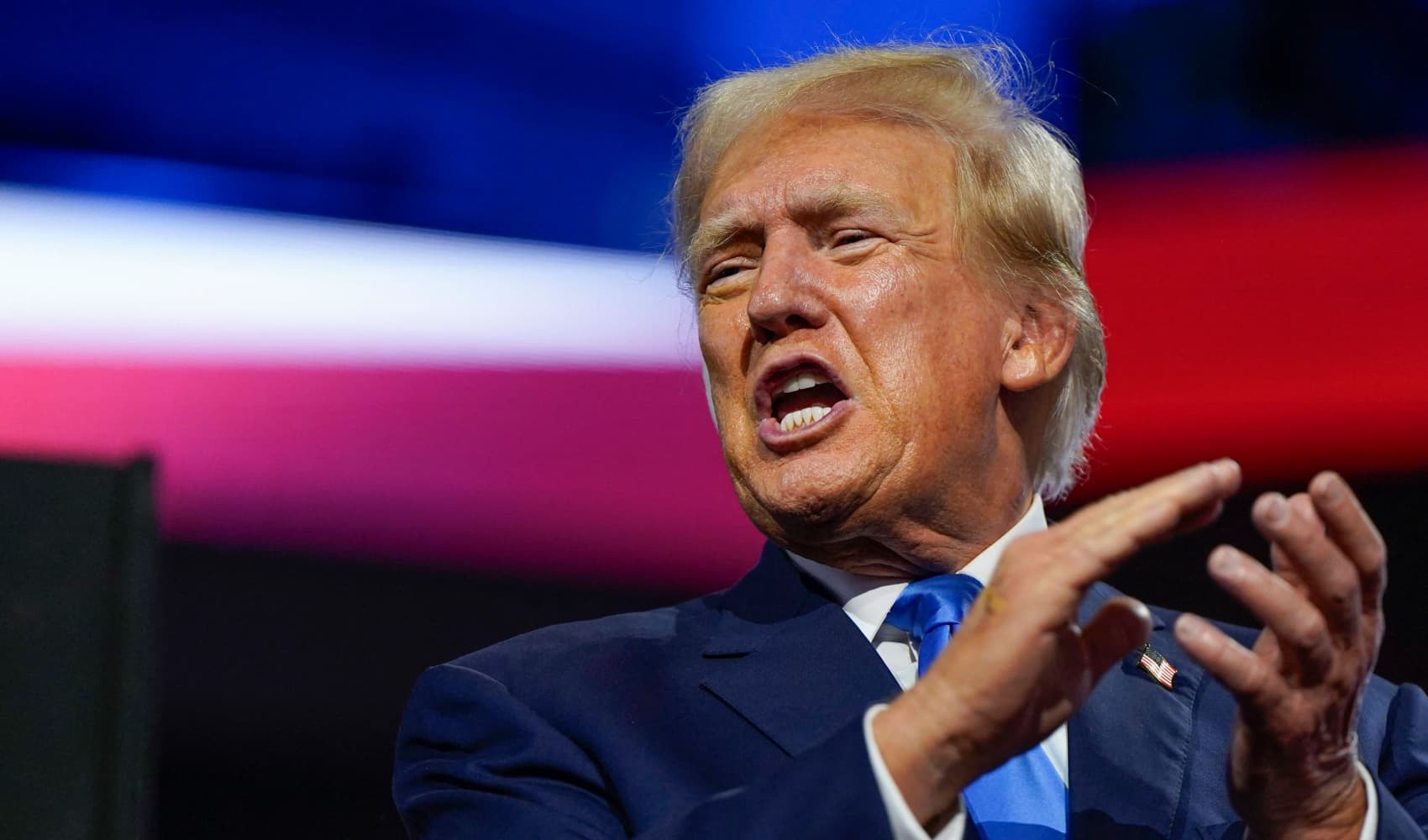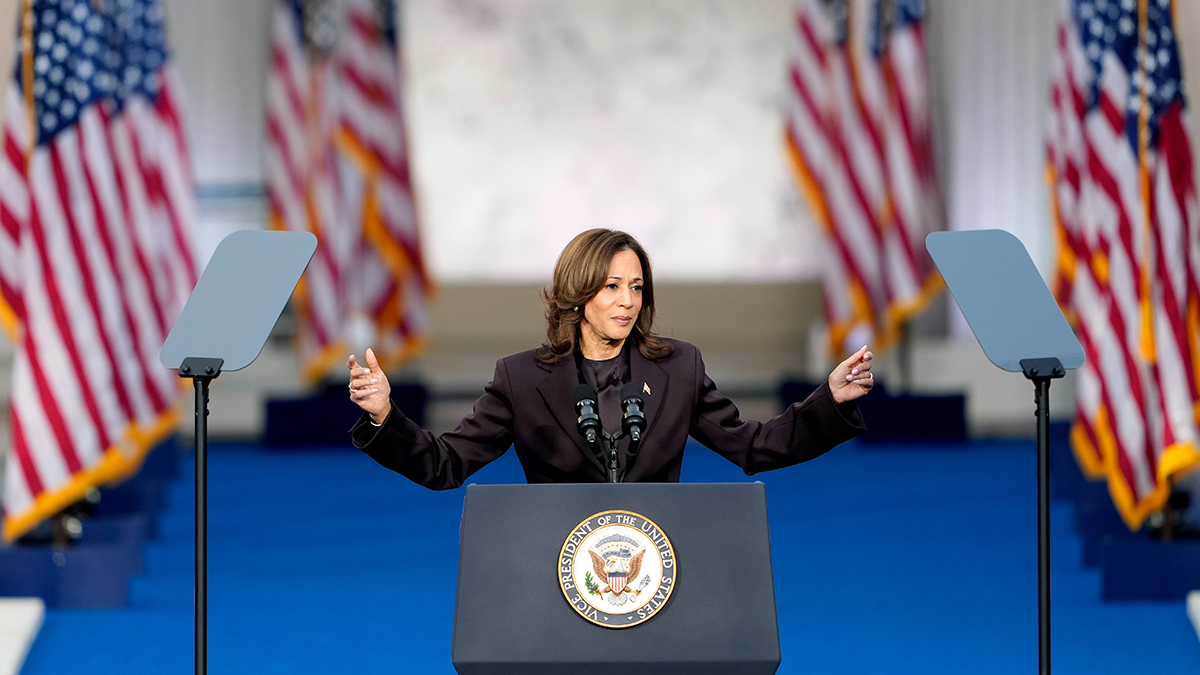Project 2025, a lengthy plan drafted by conservatives, serves as a blueprint to remake the federal government in a second Donald Trump administration.
The president-elect, meanwhile, has tried to distance himself from Project 2025, claiming he doesn't know anything about it and has “no idea who is in charge of it, and, unlike our very well-received Republican Platform, had nothing to do with it.”
Here's what to know about Project 2025 and how Trump plans to implement its mission:
Get top local stories in San Diego delivered to you every morning. >Sign up for NBC San Diego's News Headlines newsletter.
What is Project 2025?
Led by the Heritage Foundation, a conservative think tank, Project 2025 is a detailed, 920-page handbook for governing under the next Republican administration.
The document outlines a dramatic expansion of presidential power. The overarching theme of Project 2025 is to strip down the “administrative state.” This, according to the blueprint, is the mass of unelected government officials who pursue policy agendas at odds with the president’s plans.
Much of the new president’s agenda would be accomplished by reinstating what’s called Schedule F — a Trump-era executive order that would reclassify tens of thousands of federal employees as essentially at-will workers who could more easily be fired and replaced by Trump loyalists.
It calls for the U.S. Education Department to be shuttered, and the Homeland Security Department dismantled, with its various parts absorbed by other federal offices.
There’s a “top to bottom overhaul” of the Department of Justice, particularly curbing its independence and ending FBI efforts to combat the spread of misinformation
The plan says the Department of Health and Human Services should “pursue a robust agenda” to protect “the fundamental right to life,” and the Food and Drug Administration’s approval of medications used in abortions should be reversed. It also calls for reviving a 19th-century law, the Comstock Act, to ban any abortion medications, equipment, or materials from being sent through the U.S. Postal Service.
Diversity, inclusion and equity programs would be gutted. Promotions in the U.S. military to general or admiral would go under a microscope to ensure candidates haven’t prioritized issues like climate change or critical race theory.
On immigration, proposals include targeted raids on immigrant communities for mass deportations, ending birthright citizenship and reversing the Flores settlement to make way for family separation. It also proposes restricting legal immigration by doing away with many of the programs that offer immigrants a pathway to citizenship, including work and student visas, DACA, family-based immigration, TPS and visas for victims of crime and human trafficking.
While presidents typically rely on Congress to put policies into place, the Heritage project leans into what legal scholars refer to as a unitary view of executive power that suggests the president has broad authority to act alone.
To push past senators who try to block presidential Cabinet nominees, Project 2025 proposes installing top allies in acting administrative roles, as was done during the Trump administration to bypass the Senate confirmation process.
John McEntee, another former Trump official advising the effort, said the next administration can “play hardball a little more than we did with Congress.”
In fact, Congress would see its role diminished — for example, with a proposal to eliminate congressional notification on certain foreign arms sales.
Who is behind Project 2025?
Some of the people involved in Project 2025 are former senior administration officials with deep GOP ties. The project’s former director, Paul Dans, served as chief of staff at the U.S. Office of Personnel Management under Trump. Dans stepped down from the role in July after the project “completed exactly what it set out to do: bringing together over 110 leading conservative organizations to create a unified conservative vision, motivated to devolve power from the unelected administrative state, and returning it to the people," Heritage Foundation President Kevin Roberts said in a statement.
Trump's former White House budget chief, Russell Vought, was a key architect of the plan and was also appointed to the Republican National Committee’s platform writing committee. Vought is likely to be appointed to a high-ranking post in a second Trump administration. And he’s been drafting a so-far secret “180-Day Transition Playbook” to speed the plan’s implementation to avoid a repeat of the chaotic start that dogged Trump’s first term.
John McEntee, a former director of the White House Presidential Personnel Office in the Trump administration, was a senior adviser. McEntee told the conservative news site The Daily Wire earlier this year that Project 2025’s team would integrate a lot of its work with the campaign after the summer when Trump would announce his transition team.
More than a hundred conservative organizations have contributed to the project, recruiting an "army" of Americans to go to Washington and "flood the zone with conservatives" if Republicans took back the White House.
What does Trump say about Project 2025?
Trump has tried to distance himself from Project 2025 and has denied knowing who is behind the plan.
Yet he spoke highly about the group's plans at a dinner sponsored by the Heritage Foundation in April 2022, saying: “This is a great group, and they’re going to lay the groundwork and detail plans for exactly what our movement will do and what your movement will do when the American people give us a colossal mandate to save America.”
Trump’s attempts to reject the blueprint are complicated by the connections he has with many of its contributors.
The decision to make Vice President-elect JD Vance his running mate was taken by some as one more connection to Project 2025. Heritage’s President Kevin Roberts has said he’s good friends with Vance and that the Heritage Foundation had been privately rooting for him to be the VP pick.
Vance penned the foreword to Roberts' own new book, which was set to be out in September but has now been postponed as Project 2025 hits turmoil. Roberts is holding off the release of his potentially fiery new book until after the November presidential election.
Stephen Miller, a former Trump White House adviser who now runs America First Legal, has also been closely involved. Miller has also sought to distance himself, insisting in a statement to NBC News that he's "never been involved with Project 2025."
Democrats for months have been using Project 2025 to hammer Trump and other Republicans, arguing to voters that it represents the President-elect's true — and extreme — agenda.




